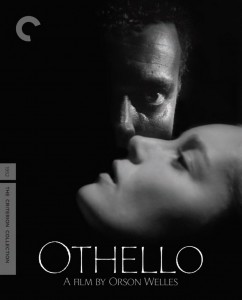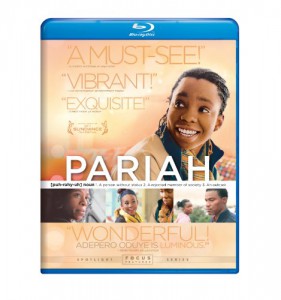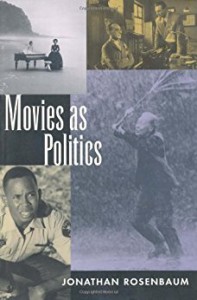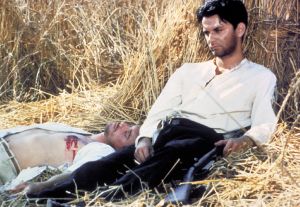From the Spring 2018 issue of Cinema Scope. — J.R.

Let me start by paraphrasing and slightly expanding a comment of mine appended to my 2017 ten-best list for DVD Beaver. A major reason for listing Criterion’s Othello first is that it includes the digital premieres of not one, not two, but three Orson Welles features: both of his edits of Othello available with his own soundtracks, carried out respectively in 1952 and 1955 and heard for the first time in the US in several decades, and Filming Othello (1979), his last completed feature.

Fans of Mudbound (2017) like myself who want to get acquainted with Dee Rees’ previous work should check out the second of her three previous features, Pariah (2011), available inexpensively in both DVD and Blu-ray formats. This autobiographical look at the tribulations of a gay black teenager and her family, shot in a very different style from Mudbound (much more documentary-like), is beautifully and richly acted by its lead, Adepero Oduye — though I wonder if the use of Brooklyn rather than Rees’ native Nashville as a location (occasioned, I would guess, by the services of Spike Lee as executive producer) made any significant differences in terms of Rees’ script and/or characters. Read more
My introduction to my 1997 collection MOVIES AS POLITICS. — J.R.

A feeling of having no choice is becoming more and more widespread in American life, and particularly among successful people, who are supposedly free beings. On a concrete plane the lack of choice is often a depressing reality. In national election years, you are free to choose between Johnson and Goldwater or Johnson and Romney or Reagan, which is the same as choosing between a Chevrolet and a Ford — there is a marginal difference in styling. Just as in American hotel rooms you can decide whether or not to turn on the air conditioner (that is your business), but you cannot open the window.
— Mary McCarthy, Vietnam, 1967
I await the end of Cinema with optimism. — Jean-Luc Godard, Cahiers du cinéma, 1965
Thirty years later, both these general sentiments describe an impasse in American life that is vividly reflected in the movies we see and the ways that we see them. If the range of cultural choices apparently available at any given time merits some correlation with the range of political choices, it is also true that Godard’s optimistic apocalypse heralds a new scale of values, though we don’t yet know enough about these to be able to judge them with any confidence. Read more
I’m pretty sure that my very first contributions to the Chicago Reader were these two capsule reviews, commissioned by Dave Kehr for their November 5, 1982 issue when these films were playing at the Chicago International Film Festival. — J.R.

The Night of the Shooting Stars.
The seventh feature written and directed by the talented Taviani brothers – Vittorio and Paolo, born respectively in 1929 and 1931 in San Miniato, Italy – and the third to open in America, The Night of the Shooting Stars is an Italian memory film that belongs to the same respectable company as Bertolucci’s The Spider’s Strategm, Fellini’s Amarcord, and Scola’s We All Loved Each Other So Much. The Tuscan town of San Martino during the last days of the war in 1944, as recounted by a woman who was six at the time to her daughter, provides the framework for this passionate and volatile fresco-in-motion, which radiates with unexpected and even startling moments of bucolic poetry. The actual war sequences contain some of the shocking beauty and giddy surprises one associates with the great Soviet directors, Dovzhenko in particular. Read more




